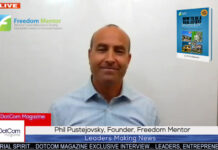In the dynamic realm of user experience (UX) design, the role of a UX researcher is pivotal in understanding the needs, behaviors, and preferences of users. A UX researcher employs a diverse set of methodologies to gather insights that inform the design and development of products or services, ensuring they align seamlessly with user expectations. Let’s delve into the multifaceted world of UX research, exploring its key principles, methodologies, and the essential skills that define this critical role in the ever-evolving landscape of digital design.
1. Definition and Role Overview: A UX researcher is a professional dedicated to understanding user behaviors, needs, and motivations to inform the design and development of user-centric products or services. The role encompasses a wide range of responsibilities, including planning and conducting research studies, analyzing data, and translating insights into actionable recommendations for design teams. The primary goal is to ensure that the end product aligns with user expectations, enhancing the overall user experience.
2. User-Centered Design Philosophy: At the core of UX research is the philosophy of user-centered design (UCD). This approach prioritizes the needs and preferences of users throughout the design process. UX researchers work collaboratively with designers, product managers, and other stakeholders to integrate user feedback and insights at every stage, from ideation to implementation. By adopting a user-centered mindset, organizations can create products that resonate with their target audience and address genuine user pain points.
3. Research Methodologies: UX researchers employ a diverse array of research methodologies to gather insights into user behavior. These methodologies include but are not limited to:
User Interviews: Conducting one-on-one interviews with users to gain in-depth insights into their experiences, preferences, and challenges.
Surveys and Questionnaires: Distributing structured surveys to a larger user base to collect quantitative data on user opinions and preferences.
Usability Testing: Observing users as they interact with prototypes or existing products to evaluate usability and identify areas for improvement.
Card Sorting: Asking users to organize content or features into categories, providing valuable input on information architecture.
Contextual Inquiry: Observing users in their natural environment to understand how they interact with a product or service in real-life situations.
Adopting a mix of these methodologies allows UX researchers to gather comprehensive insights and triangulate findings for a more accurate understanding of user needs.
4. Empathy and User Advocacy: Successful UX researchers possess a high degree of empathy, allowing them to understand the perspectives, emotions, and motivations of users. This empathy is coupled with a commitment to advocating for users within the design and development process. By championing the user’s voice, a UX researcher ensures that decisions are grounded in user needs, fostering a user-centric culture within the organization.
5. Collaboration and Communication Skills: Effective collaboration and communication skills are essential for UX researchers. They work closely with cross-functional teams, including designers, developers, and product managers. Clear and concise communication of research findings, actionable insights, and user personas is crucial for facilitating informed decision-making within the broader product development team. Strong collaboration skills also help bridge the gap between research and design, ensuring that insights are seamlessly integrated into the creative process.
6. Iterative and Agile Approach: The UX research process is often iterative and aligns with agile development methodologies. Researchers continuously gather feedback, test prototypes, and refine designs based on user insights. This iterative approach allows for the incorporation of user feedback throughout the development lifecycle, leading to more responsive and user-friendly products. Agile methodologies, with their emphasis on flexibility and adaptability, complement the iterative nature of UX research.
7. Quantitative and Qualitative Analysis: UX researchers engage in both quantitative and qualitative analysis to derive meaningful insights. Quantitative data, obtained through surveys or analytics tools, provides numerical metrics and statistical patterns. Qualitative data, gathered from interviews, usability tests, and observational studies, offers rich contextual information and user narratives. The combination of both types of analysis provides a holistic understanding of user behavior, allowing researchers to uncover patterns and outliers that inform design decisions.
8. Continuous Learning and Adaptability: The field of UX design is dynamic, with evolving technologies and shifting user expectations. Successful UX researchers exhibit a commitment to continuous learning and adaptability. Staying abreast of industry trends, emerging technologies, and advancements in research methodologies ensures that researchers can leverage the latest tools and techniques to gather relevant insights. The ability to adapt to evolving project requirements and embrace new challenges is a hallmark of a proficient UX researcher.
9. Ethical Considerations: Ethical considerations are paramount in UX research, given the sensitive nature of user data and the potential impact of design decisions on users’ lives. Researchers must prioritize user privacy, obtain informed consent, and adhere to ethical guidelines in data collection and analysis. Transparent communication with users about the purpose of the research, the handling of their data, and the potential impact of the study on product development is fundamental to maintaining trust and integrity in the research process.
10. Impact on Business Success: Effective UX research directly contributes to the success of a business by ensuring that products meet user expectations and deliver a positive experience. Investing in UX research can lead to higher user satisfaction, increased user retention, and a competitive edge in the market. By aligning design decisions with user needs, organizations can create products that resonate with their target audience, fostering brand loyalty and driving business growth.
A UX researcher plays a pivotal role in crafting user-centric digital experiences. Grounded in the principles of user-centered design, employing diverse research methodologies, and embodying empathy and advocacy, UX researchers contribute to the creation of products that not only meet user needs but also drive business success. The field continues to evolve, and the role of UX research remains integral to the ongoing pursuit of optimal user experiences in the digital landscape.
Strategic integration of UX research with overall business strategy is crucial for long-term success. UX researchers collaborate with business leaders to align research goals with organizational objectives. Understanding the broader business context enables researchers to provide insights that not only enhance the user experience but also contribute to strategic decision-making. This alignment ensures that UX research becomes an integral part of the organizational strategy, driving innovation and competitive advantage.
In conclusion, the role of a UX researcher is multifaceted and continually evolving to meet the demands of an ever-changing digital landscape. By championing user needs, employing diverse research methodologies, and staying abreast of emerging trends, UX researchers contribute significantly to the creation of products that not only meet user expectations but also drive business success. The dynamic nature of UX research ensures that it remains at the forefront of user-centric design, shaping the way digital experiences are crafted and refined for optimal user satisfaction and impact.
















